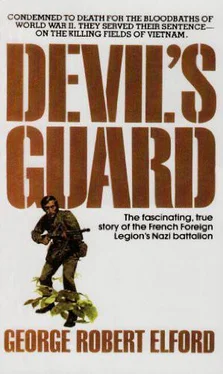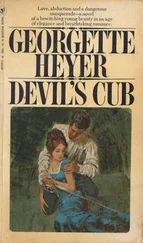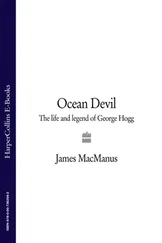When we arrived, the woman had been frying a jungle fowl in the green sauce of a variety of wild vegetables. She offered us a portion of the meal which we gently refused, pointing out that there were enough mouths for her to feed. Schulze presented her with a small bag of salt—something very valuable in the jungle—and a pack of tobacco for her husband.
Suoi and the nurses treated the sores of the children, the eldest of whom was only about seven years old. They cleaned their festering ulcers, and Noy gave a jar of antibiotic ointment to the woman, explaining to her that she should repeat the treatment every day for at least a week. Sergeant Zeisl donated a box of vitamin pills. It took some time until the woman understood that only one pill per child per day should be used, and that she should hide the container from the children.
She wanted to return our kindness. She led us to a narrow concealed path. Motioning for the girls and me to follow her, she descended about a hundred yards to where a small creek formed a large deep pool. It teemed with fish and the woman gestured that we should take as many as we wanted. We spent the better part of the day spearing and netting fish, for I did not want to spoil their pond by using explosive charges—our customary and much faster way of fishing. We had a splendid meal of rice with curried fish. From Krebitz’s rucksack came a few small toys; each child received, something. We departed as good friends. Our hostess agreed that we were not “bandits,” although it was quite obvious that she could place us in no other category of manhood. The words “army” and “soldier” had no meaning for her.
The husband had not returned before we left but the woman was not worried about him. Tribal hunters would often undertake long trips which lasted for days. In a way, I was sorry for his prolonged absence, for even by using sign language we could have obtained valuable intelligence from the man, who traveled a great deal in the area. But as the date of his return was uncertain, I decided to push on.
After three more days of tortuous going, during which we drew a distorted semicircle through the hills, we closed in once again on the Viet Minh lifeline. It ran close to the town of Muong Ham, and from there it turned sharply eastward to skirt Paksane along the Khong River. Krebitz and twelve men from Gruppe Drei discovered another large guerrilla base which, apart from regular supplies, also harbored twenty to thirty large river barges. Everything was covered with green and well hidden from air reconnaissance. Closer observation revealed that the camp was not a depot for storing barges but rather a manufacturing complex to produce them. So it was another valuable target! Like the other base, this, too, had been erected in a spacious depression between a chain of forested hills, but here we found no river that crossed the camp, and any thought of repeating our previous coup could be discarded. A direct attack might have been successful, but it would have also been costly. Such large guerrilla establishments accommodated several hundred terrorists, and the approaches were properly defended.
We spent a couple of days surveying the neighborhood. The lower hills, immediately around the base, were all occupied by Viet Minh lookouts. The higher elevations, five to six hundred yards from the camp, were vacant Without wasting time we occupied those with sharp platoons. I was already nursing the idea of trying there an as yet unexploited ruse: A night raid by fighter bombers. I told Erich about my idea. His only comment was: “Are you having a sunstroke or something, Hans?” Indeed the idea sounded like a. crazy one—a night attack by planes against a target that was invisible beneath the thick foliage even during the daytime. I reminded Schulze that when he came to me with his flooding scheme, I gave him a chance to convince me. He wouldn’t agree with my comparison. “I came to you with all the details worked out,” he protested.
“What makes you think that I haven’t worked out my own details, Erich?”
“Because I think that there aren’t any details to be worked out, Hans. The planes can never find the base, not even if we guide them by radio,” Erich insisted.
“I have something better to guide them with than radios,” I replied, inviting him to sit down. He dropped to a tree stump.
“Can you bring the planes to the target?”
“On the bull’s-eye, Erich.”
It was very simple. We would place heavy MG’s on the dominant hills, six hundred yards around the base, and mark the target area within the convergence of tracers. To illustrate my idea, I drew a crude sketch and soon both Schulze and Krebitz agreed that it could be done. Henceforth we referred to similar actions only as “boxing in” the target. It turned out to be an entirely new concept of cooperation between a ground force and the air force—at night.
I sent a long coded report to Colonel Houssong, giving more details about the Red Highway and explaining my plan for a bombing raid. Three days later I received the go-ahead with the instructions: “Mission No. 1 of Operation Firefly will commence on Wednesday at 0200 hours.”
I knew that everything would depend on the effectiveness of the on-the-spot guidance. Our only long-range transmitter would have to be set up on a hilltop twelve miles from the target area, to transmit a steady beam on which the planes could ride home. This would bring them in close enough to receive the final coordinates on the spot. It would be imprudent to use a transmitter any closer to our target.
On D-Day, Sergeant Altreiter and twenty men departed for “Hill 811” to establish the radio beam. We deployed on Hills “1022” and “1023” before sunset; Schulze and forty troops occupied the former, and I with fifty troops the latter elevation. Riedl and the rest of the men remained in the camp.
Early in the afternoon the clouds began to thicken and by five P.M. the sky was overcast. To our great relief it did not rain and although the moon remained hidden, the raid still had a fair chance of success. The enemy base lay perfectly, still and concealed beneath the jungle foliage—a dark shape that expanded into infinity. Our MG’s had been sighted during the day and were now locked firmly in position. When fired, the lines of tracers would converge to “box in” the enemy camp.
The hours dragged by in tense expectation until shortly after one-thirty A.M., when we heard a faint drone which gradually resolved into the roar of approaching planes. The squadron was coming.
A few steps from where I stood our machine gunners tensed. Others were holding their signal pistols ready. Moments later the foremost planes were within range of our walkie-talkies.
“Oiseaux—Oiseaux… firefly on yellow Very lights. Waterfall within quadrangle… waterfall within quadrangle.”
“Septeuil—Septeuil… message received. Signal time 0146. Coming in.”
The Very lights shot skyward, drawing lazy semicircles over the jungle.
“Fire!” The MG’s erupted with a vicious clatter, spitting a hail of tracers over the treetops—taut lines of fire, as though burning wires were stretched between the hills. An instant later Schulze opened up from Hill 1022. His tracers converged with ours. The gunners under Krebitz joined the display. Even from our position, we could clearly see the quadrangle of steel which now enclosed the invisible Viet Minh base. It was a magnificent sight.
With engines howling at high pitch, the fighter bombers screamed over the hills. Another set of MG’s took over the marking and the jungle erupted in a multitude of explosions. The first salvo of bombs went home. Demolition bombs, rockets, and napalm rained from the skies. In a few minutes the forest was an inferno.
“Septeuil—Septeuil,” the squadron leader called. “Cut out the markers. It is bright enough now.”
Читать дальше












